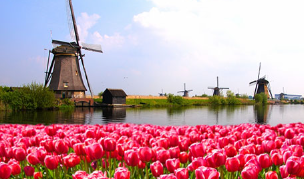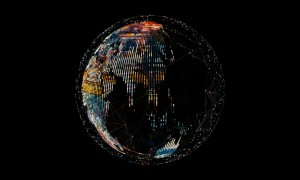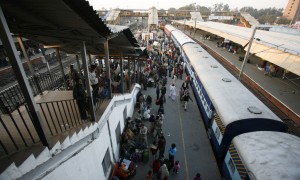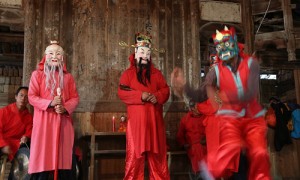你都是凭感觉用the 吗 ? the是英文中唯一定冠词,其实有明确的规则在什么时候使用,以下就是the 最常使用的状况 :
1. 用来指出之前已经提过的人、事或物
I live in a city. The city is very big and crowded.
我住在一个城市 ,这个城市很大而且拥挤。
Emma’s birthday present was a bicycle. The bicycle was exactly what she had longed to have.
Emma 的生日礼物是一台脚踏车,那部脚踏车正是她渴望拥有的。
There’s a position available in my team. The job will involve some international travel.
在我的团队有个职缺,这工作将会包括一些国外出差。
表示说话双方已知的特定人事物
We went on a walk in the forest yesterday.
我们昨天到那森林里散步
My father enjoyed the book you gave him.
我父亲喜欢你给他的那本书

Have you locked the door ?
你锁了那扇门了吗?
用在指出该名词是唯一的人或实体
例如:the sun (太阳) / the moon (月亮) / the earth (地球) / the sky (天空) / the world (世界) / the Arctic (北极 ) / the Pope (教宗) / the president (总统)
The sun rose at 6:17 this morning.
太阳在今天早上6点17分升起
Polar bears live in the Arctic.
北极熊住在北极地区
The president will be speaking on TV tonight.
总统今天晚上将在电视上演说
用在最高级和序数的前面
例如:the best (最好的) / the worst ( 最差的) / the easiest (最简单的) / the most difficult (最困难的) / the first (第一) / the most interesting (最有趣的) / the second (第二) / the third (第三)
That’s the best movie that I have ever seen.
那是我看过最好的电影
Mike is the tallest person in our class.
Mike 是我们班上个子最高的人
Sunday is the first day of the week.
星期天是一周的第一天
用在乐器、知名建筑物或艺术品的前面
例如:the piano (钢琴) / the cello (大提琴) / the saxophone (萨克斯風) /The White House (白宫) / the Eiffel Tower (艾菲尔铁塔) / the Thinker (沉思者) / the Mona Lisa (蒙娜丽莎)
Bill enjoys playing the saxophone in his free time.
Billy 在空闲时喜欢吹萨克斯風
Alexander Eiffel designed the Eiffel Tower.
亚历山大艾菲尔设计了艾菲尔铁塔
The Mona Lisa was painted by Leonardo da Vinci.
达文西画了蒙娜丽莎的微笑这幅画
用在统称某种发明、器具或动植物的前面
例如:the telephone (电话) / the light bulb (灯泡) / the airplane (飞机) / the bicycle (单车) / the dolphin (海豚) / the leopard (豹) / the sequoia (红杉) / the oak (橡树)
Do you know who invented the light bulb ?
你知道谁发明灯泡吗?
The bicycle is a very good means of transportation.
脚踏车是很好的交通工具
The dolphin is a very intelligent animal.
海豚是非常聪明的动物
用在特定的时间,和方向与方位的前面
例如:the morning (早上) / the past (过去) / the future (未来) / the 1960s (1960 年代) / the 21st century (21 世纪) / the north (北方) / the east (东方) / the right (右边) / the left (左边)
The earthquake occurred at eight o’clock in the morning.
地震在早上8点发生
In the past, this sort of work was all done by hand.
这类的工作在过去都是用手工完成
David hopes to move to the south.
David希望搬到南方去
用在形容词前面形成复数的名词,表示这一类族群的人。
例如:the rich (富有的人) / the poor (贫穷的人) / the young (年轻人) / the sick (生病的人) / the injured (受伤的人) / the homeless (无家可归的人) / the unemployed (失业的人) / the blind (失明的人) / the deaf (耳聋的人)
Life can be very hard for the poor.
对贫穷的人来说生活可能是艰难的
I think the rich should pay more taxes.
我认为富有的人应该要付更多的税
She works for a group to help the disabled.
她在一个帮助残障人士的团体工作
用在姓氏的复数前面,表示那一家人。
例如:the Smiths (史密斯家族) / the Wilsons (威尔森家族) / the Johnsons (强生家族) / the Kennedys (甘迺迪家族)
The Smiths love to take a vacation in Hawaii.
Smith 这一家人喜爱到夏威夷度假
We live next to the Johnsons.
我们住在Johnson这家人的隔壁
The Kennedys are originally from Ireland.
甘乃迪家族最初来自爱尔兰
放在少数特定国家名称的前面
例如:the United States ( 美国) / the United Arab Emirates ( 阿拉伯联合大公国) / the United Kingdom (英国) / the Czech Republic (捷克) / the Netherland (荷兰) / the Philippines (菲律宾)
I have never been to the Netherlands.
我从没去过荷兰
Do you know anyone who lives in the Philippines?
你有认识任何人住在菲律宾吗?
James comes from the United States.
James 来自美国
用在国名的形容词前,表这国家的国民 。
例如:the English (英国人) / the Spanish (西班牙人) / the Swiss (瑞士人) / the Irish (爱尔兰人) / the Japanese (日本人) / the Chinese (中国人)
The French enjoy cheese.
法国人喜爱起司
The Japanese make excellent cars.
日本人制造优异的车
The Spanish are family-oriented.
西班牙人以家庭为重
放在海洋、河流、山脉、沙漠名称的前面
例如:the Pacific Ocean 太平洋 / the Atlantic Ocean 大西洋 / the Indian Ocean 印度洋 / the Nile 尼罗河 / the Amazon 亚马逊河 / the Rhine 莱茵河 / the Andes 安地斯山脉 / the Rocky Mountains 落矶山脉 / the Alps 阿尔卑斯山脉 / the Sahara 撒哈拉沙漠
The Sahara is the world’s largest desert.
撒哈拉沙漠是全世界最大的沙漠
Our ship crossed the Atlantic in 7 days.
我们的船在7天内横越大西洋
Hiking across the Rocky Mountains would be difficult.
健行横越落矶山脉将是艰难的







